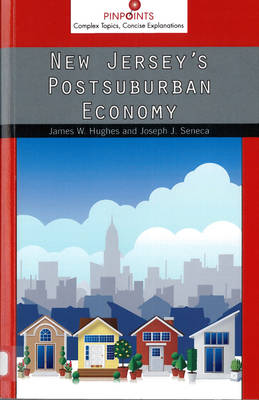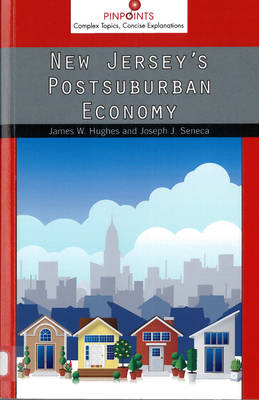
- Retrait gratuit dans votre magasin Club
- 7.000.000 titres dans notre catalogue
- Payer en toute sécurité
- Toujours un magasin près de chez vous
- Retrait gratuit dans votre magasin Club
- 7.000.000 titres dans notre catalogue
- Payer en toute sécurité
- Toujours un magasin près de chez vous
33,95 €
+ 67 points
Description
New Jersey has a long history of adapting to a changing economic climate. From its colonial origins to the present day, New Jersey's economy has continuously and successfully confronted the challenges and uncertainties of technological and demographic change, placing the state at the forefront of each national and global economic era. Based on James W. Hughes and Joseph J. Seneca's nearly three-decade-long Rutgers Regional Report series, New Jersey's Postsuburban Economy presents the issues confronting the state and brings to the forefront ideas for meeting these challenges. From the rural agricultural and natural resource based economy and lifestyle of the seventeenth century to today's postindustrial, suburban-dominated, automobile-dependent economy, the economic drivers which were considered to be an asset are now viewed by many to be the state's greatest disadvantage. On the brink of yet another transformation, this one driven by a new technology and an internet based global economy, New Jersey will have to adapt itself yet again--this time to a postsuburban digital economy.
Hughes and Seneca describe the forces that are now propelling the state into yet another economic era. They do this in the context of historical economic transformations of New Jersey, setting out the technological, demographic, and transportation shifts that defined and drove them.
Hughes and Seneca describe the forces that are now propelling the state into yet another economic era. They do this in the context of historical economic transformations of New Jersey, setting out the technological, demographic, and transportation shifts that defined and drove them.
Spécifications
Parties prenantes
- Auteur(s) :
- Editeur:
Contenu
- Nombre de pages :
- 152
- Langue:
- Anglais
- Collection :
Caractéristiques
- EAN:
- 9780813570013
- Date de parution :
- 10-10-14
- Format:
- Livre broché
- Format numérique:
- Trade paperback (VS)
- Dimensions :
- 140 mm x 216 mm
- Poids :
- 204 g







